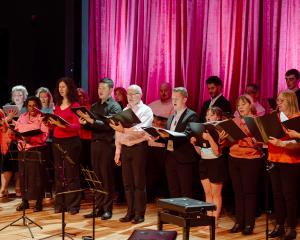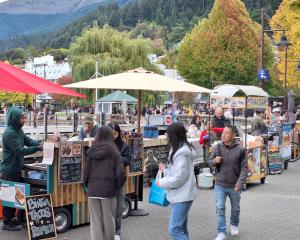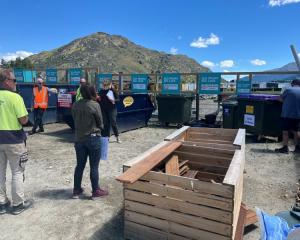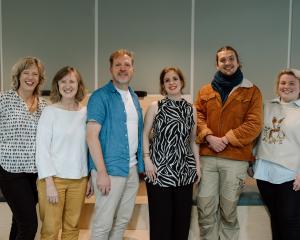As tourists enjoy New Zealand's adventure capital, a growing number of Queenstown residents are sleeping in cars and tents due to a severe shortage of accommodation.
More than 1000 households are currently waiting for housing support in the district, with some people finding no alternative but to take extreme measures, even if they have a regular job.
That means a winter in the cold, and likely a sizzling summer out in the elements.
On the shore of Lake Wakatipu, a tent tucked behind a bush contained everything one of those people, Paula Martin, owned.
"It's rowdy - no access to showers," she said of the Twelve Mile Delta campsite she calls home.
"There's just a toilet. You can't drink the water. I've got to get water from town.
"It's rough and it's wearing me down. It's affecting my mental health and it's affecting my physical health. I've just been doing it for too long and it takes a toll."
Martin, 50, worked as a cleaner, starting late in the afternoons and sometimes working until the small hours. Despite getting a regular income, she cannot find a safe and comfortable place to live.
"Eighteen months in a tent. I've been looking for a place to live, but as I'm older and I work nights I've found it really difficult to find somewhere."
She was not alone as a permanent campsite resident.
"I've got a comfortable bed. I've got two layers of tent just to help with insulation a bit, from the cold and the heat."
Winters were manageable, but summers were tough, when the camp became noisy and dusty, Martin said.
"The sun gets up at 6am and in the tent it's really hot. It makes it hard when you're working nights.
"I only work part-time at the moment because that's all I can really manage living like this."
Martin said she was confident Queenstown, home for 23 years, would find a solution to the accommodation crunch.
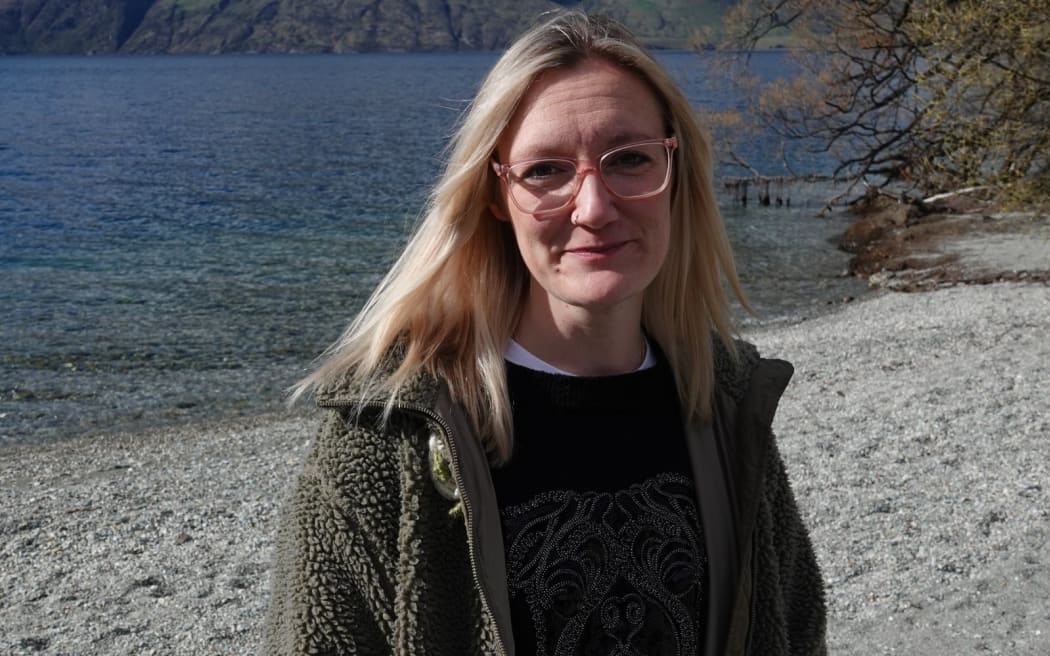
The initiative aimed to give a voice for people she described as houseless, as distinct to being homeless, with its particular issues.
At the camp, she showed RNZ the facilities available.
"In the evening there's no lights or anything like that. It's a very, very dark space."
And considering the size of the campsite, there were not many toilets, she said.
Sullivan was worried about people sleeping in cars on cold winter nights, and said the problem was a decade in the making.
"People are going about their lives, still doing their 40- to 60-hour weeks that you do in Queenstown and everywhere right now, and then they have nowhere to go afterwards.
"Their home is their car or their tent. There's no support for them, unfortunately."
She had accommodation at the moment, but had found herself unable to find a place in the past.
Since starting the initiative, she had advocated for and helped those without houses as much as she can.
This included a family of five who arrived in Queenstown for the parents' work, only to find their rental had fallen through at the last minute.
"[The] children were living in a tent and going to school. It was really sad to see. All I could do is come and give them little chocolate bars or bring soup when I made some."
Even those who find rental accommodation said it was a struggle, such as Kingston Otene.
"Rent's probably $775 a week [for] a three-bedroom house. It's just me, my partner and my young fulla...
"We struggled for a good while [to find a home]. It was just lucky that one of our mate's missus was a property manager, so we got one that way," he said.
"Quite a lot of people don't want a young fulla in their houses."

But they do go on the trust's lists. It's a not-for-profit, established by the council, and had 1048 households on waiting lists for the likes of public housing, affordable rentals and rent-to-buy schemes.
"I think it's gone up around 20 percent from last year, so significantly. Historically, it used to go up by about 100 households per annum, but more recently some months we've seen 100 registrations."
Scott was confident a joint housing action plan for the next five years, with government organisations, would make a difference to a situation that had crept up on the town.
Earlier this year the council voted to support the plan, which included the trust, Kāinga Ora, the Ministry of Housing and Urban Development, and laid out nine housing solutions. Those included supporting the trust's work, looking at public-private partnership and incentivising developers to offer affordable housing.
At the time, RNZ reported the district needed 3000 affordable homes.
"Pre-Covid there was huge housing stress, particularly in the rental property market" Scott said.
"Then, obviously, we had Covid. Rents came back probably by around 30 percent and it was quite achievable, and there was plenty of availability out there.
"But now we're back up at pre-Covid numbers, easily, and I think there's less available out there and that's having real pressure.
"That's why we're seeing people sleeping in tents and cars."
Scott said an unintended consequence of tightening legislation for rental properties was that some landlords had sold, while others ran their houses as Airbnbs.

